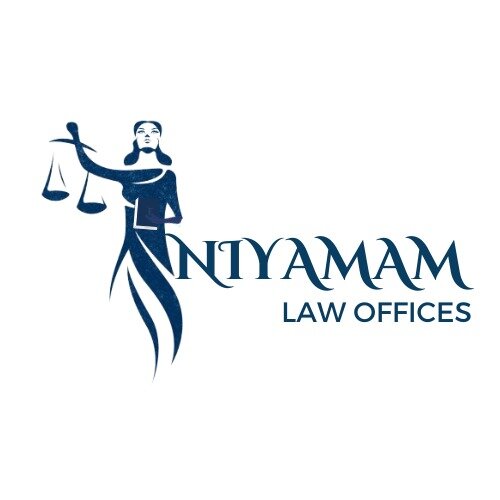Best Collaborative Law Lawyers in New Delhi
Share your needs with us, get contacted by law firms.
Free. Takes 2 min.
Free Guide to Hiring a Family Lawyer
List of the best lawyers in New Delhi, India
About Collaborative Law in New Delhi, India
Collaborative law is an alternative dispute resolution process that allows parties to resolve their legal conflicts amicably and without going to court. This approach is particularly suited for family law cases, such as divorces and child custody arrangements, but can also be utilized in business disputes and other civil matters. In New Delhi, India, collaborative law is gaining popularity as a viable option for those seeking privacy, speed, and a less adversarial process. Lawyers trained in collaborative law guide the parties through negotiations, aiming to reach mutually beneficial agreements.
Why You May Need a Lawyer
People may seek collaborative law legal assistance in several situations: - When pursuing a divorce or separation and wishing to avoid the adversarial court process. - In case of child custody and visitation issues, where a mutual agreement is preferable for the child's well-being. - During the division of marital assets, when parties prefer a fair and amicable settlement. - For business partners wishing to resolve disagreements outside of court, with minimum disruption to operations. - In any civil dispute where maintaining a relationship post-resolution is desirable.
Local Laws Overview
In New Delhi, collaborative law is governed by several family, civil, and contract laws. Key aspects include: - The Hindu Marriage Act, Special Marriage Act, and other marital laws that provide the legal framework for collaborative resolutions in family disputes. - The Civil Procedure Code, which allows for out-of-court settlements. - Contract law principles that can be applied to formalize agreements reached during collaboration. - Provisions under the Indian Evidence Act, which may limit the admissibility of negotiations in subsequent court proceedings should the collaborative process fail.
Frequently Asked Questions
What is the main advantage of collaborative law?
Collaborative law offers privacy, reduces conflict, and allows parties to control the outcome of their legal issues, often resulting in quicker and less costly resolutions.
How does the collaborative process begin?
The process starts with both parties signing a "participation agreement" that commits them to resolve their issues outside of court and to provide full transparency throughout the process.
Can any lawyer assist in a collaborative law matter?
It is important to work with a lawyer specifically trained in collaborative law, as they will have the necessary skills and experience to facilitate the process effectively.
Is collaborative law only applicable to family matters?
No, while often used in family disputes, collaborative law can be applied to business disputes and other civil matters where parties wish to avoid court litigation.
What happens if the collaborative law process fails?
If the process is unsuccessful, the parties can still proceed to court. However, collaborative law agreements typically prevent the same lawyers from representing the parties in court, necessitating a change of legal representation.
How long does the collaborative process take?
The duration varies depending on the complexity of the issues, but collaborative law generally resolves matters faster than traditional litigation.
What role do collaborative law coaches or professionals play?
These professionals, who may include accountants, financial planners, or mental health experts, assist in providing specialized guidance to ensure a comprehensive settlement is reached.
Are agreements reached through collaborative law legally binding?
Yes, once signed, the agreements have the same legal standing as any other contract and are enforceable in court.
Is collaborative law suitable for all disputes?
Not always. For instance, if there's a significant power imbalance or evidence of abuse, traditional legal routes might be more appropriate.
Do collaborative law processes require disclosure of all information?
Yes, transparent and honest disclosure is crucial to the process, as it facilitates fair and informed decision-making.
Additional Resources
Several resources can assist individuals interested in collaborative law: - The Delhi State Legal Services Authority provides information on alternative dispute resolution. - Bar Associations often have directories of collaborative law practitioners. - Books and online courses on collaborative law procedures and best practices.
Next Steps
If you need assistance in a collaborative law matter: - Identify and consult with a qualified collaborative lawyer in New Delhi. - Prepare any relevant documents and articulate your goals or concerns ahead of meetings. - Keep an open mind during discussions, maintaining focus on achieving a fair agreement. - Consider involving other collaborative professionals if specialized issues arise.
Lawzana helps you find the best lawyers and law firms in New Delhi through a curated and pre-screened list of qualified legal professionals. Our platform offers rankings and detailed profiles of attorneys and law firms, allowing you to compare based on practice areas, including Collaborative Law, experience, and client feedback.
Each profile includes a description of the firm's areas of practice, client reviews, team members and partners, year of establishment, spoken languages, office locations, contact information, social media presence, and any published articles or resources. Most firms on our platform speak English and are experienced in both local and international legal matters.
Get a quote from top-rated law firms in New Delhi, India — quickly, securely, and without unnecessary hassle.
Disclaimer:
The information provided on this page is for general informational purposes only and does not constitute legal advice. While we strive to ensure the accuracy and relevance of the content, legal information may change over time, and interpretations of the law can vary. You should always consult with a qualified legal professional for advice specific to your situation.
We disclaim all liability for actions taken or not taken based on the content of this page. If you believe any information is incorrect or outdated, please contact us, and we will review and update it where appropriate.















